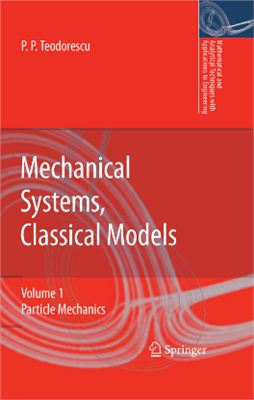Springer, 2007. 783 p. ISBN:978-1-4020-5441-9 English
All phenomena in nature are characterized by motion; this is an essential property of matter, having infinitely many aspects. Motion can be mechanical, physical, chemical or biological, leading to various sciences of nature, mechanics being one of them. Mechanics deals with the objective laws of mechanical motion of bodies, the simplest form of motion.
In the study of a science of nature mathematics plays an important role. Mechanics is the first science of nature which was expressed in terms of mathematics by considering various mathematical models, associated to phenomena of the surrounding nature. Thus, its development was influenced by the use of a strong mathematical tool; on the other hand, we must observe that mechanics also influenced the introduction and the development of many mathematical notions.
All phenomena in nature are characterized by motion; this is an essential property of matter, having infinitely many aspects. Motion can be mechanical, physical, chemical or biological, leading to various sciences of nature, mechanics being one of them. Mechanics deals with the objective laws of mechanical motion of bodies, the simplest form of motion.
In the study of a science of nature mathematics plays an important role. Mechanics is the first science of nature which was expressed in terms of mathematics by considering various mathematical models, associated to phenomena of the surrounding nature. Thus, its development was influenced by the use of a strong mathematical tool; on the other hand, we must observe that mechanics also influenced the introduction and the development of many mathematical notions.

